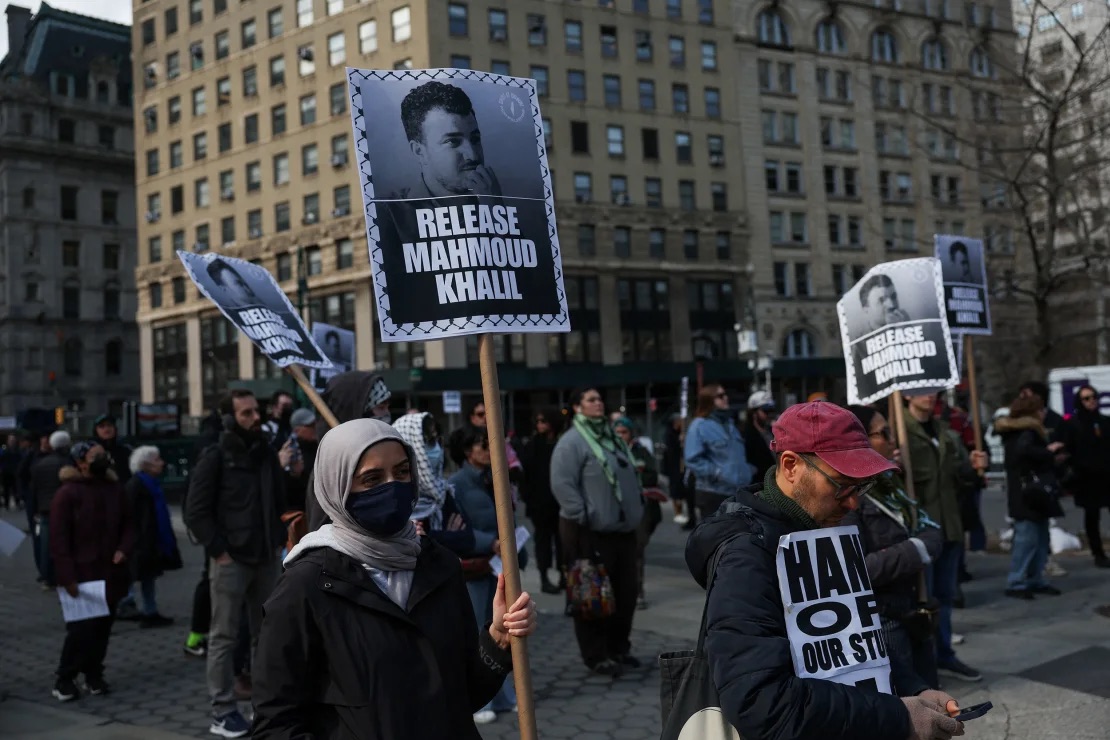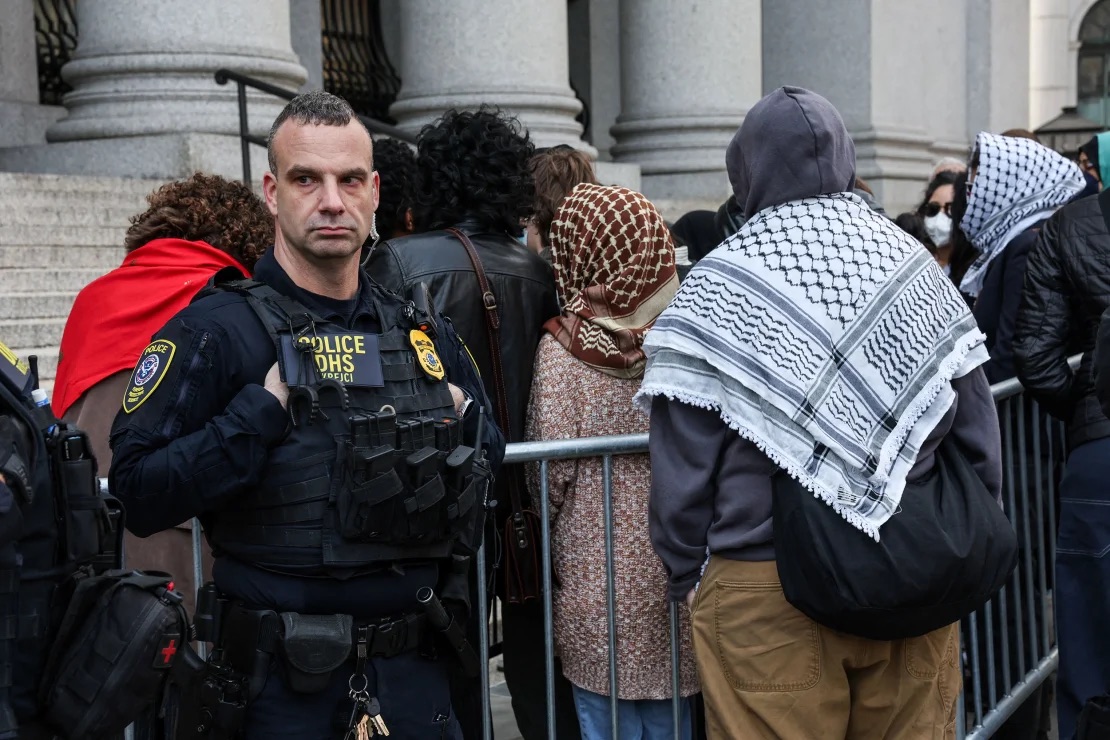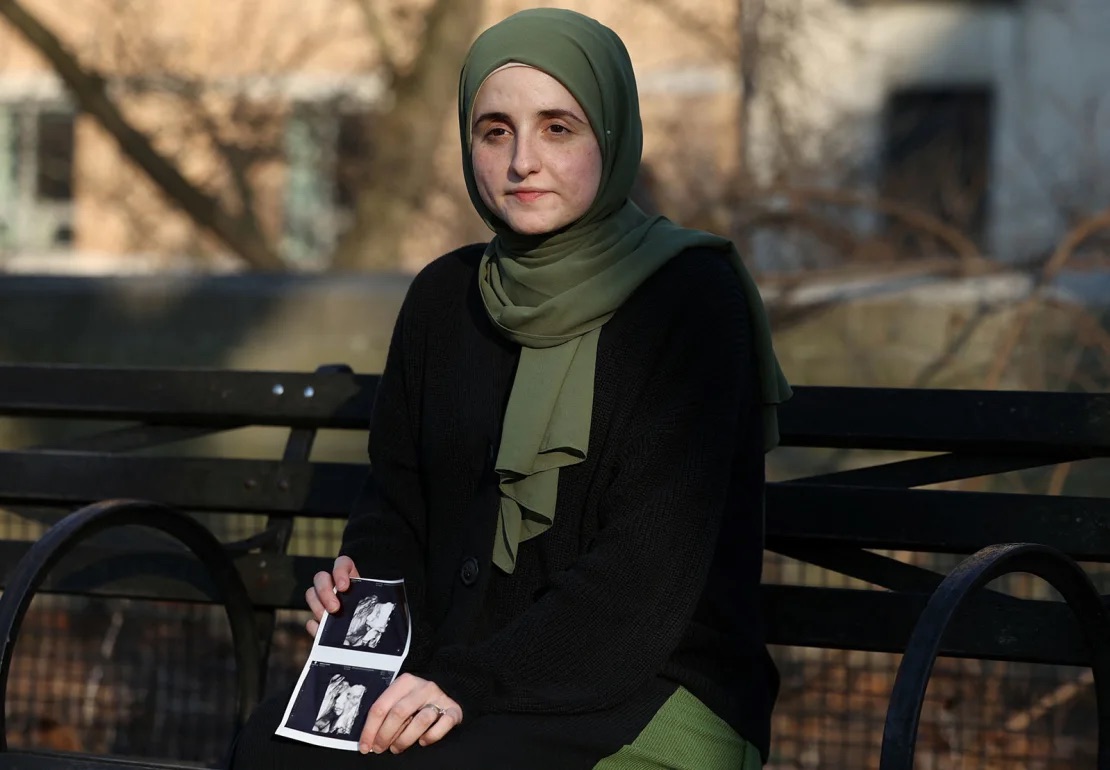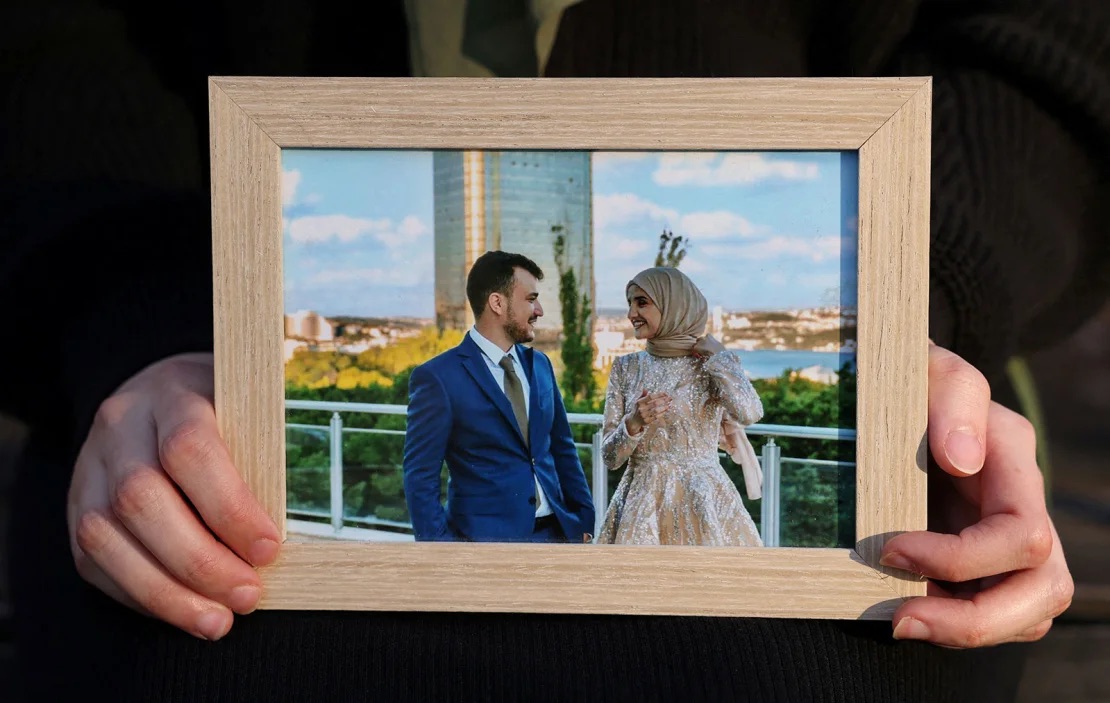NEW YORK, USA — Palestinian activist Mahmoud Khalil will remain in an Immigration and Customs Enforcement (ICE) detention facility in Louisiana following a procedural hearing in New York federal court, days after his arrest by federal officials at Columbia University.
Khalil, who has been vocal in pro-Palestinian protests against the Israel-Hamas war, was detained on Saturday, March 8, 2025, in what his lawyers claim is a politically motivated attempt by the Trump administration to deport him.
Judge Blocks Immediate Deportation
Khalil’s green card was revoked, but Judge Jesse Furman has blocked any immediate deportation, requiring both Khalil’s legal team and federal officials to appear in court for further proceedings.
At Wednesday’s hearing, Judge Furman ordered that Khalil be allowed at least one legal call per day, after his attorneys said they had been unable to communicate with him since his arrest.

“We literally have not been able to confer with our client once since he was taken off the streets of New York City,” Khalil’s attorney Ramzi Kassem said.
Kassem called Khalil’s detention retaliation for exercising his First Amendment rights, stating, “He was taken by U.S. government agents in retaliation, essentially, for speaking up in defense of Palestinians in Gaza and beyond, for being critical of the U.S. government and of the Israeli government.”
Kassem also described Khalil’s transfer to Louisiana as further retaliation, calling it an attempt to limit his access to legal counsel.
Trump Administration Seeks to Move Case Out of New York
The Department of Justice (DOJ) has signaled plans to move the proceedings from New York to New Jersey — where Khalil was first taken after his arrest — or to Louisiana, where he is now being held.
DOJ attorney Brandon Waterman stated in court that Khalil is not in immediate danger of deportation while legal proceedings continue.

Trump Administration Justifies Khalil’s Arrest
President Donald Trump has defended Khalil’s arrest, vowing to crack down on individuals involved in pro-Palestinian demonstrations.
“If you support terrorism, including the slaughtering of innocent men, women, and children, your presence is contrary to our national and foreign policy interests, and you are not welcome here,” Trump wrote on Truth Social on Monday, March 10, 2025.
The White House has not provided evidence linking Khalil to terrorism, nor has he been charged with any criminal offense.

Legal Battle Over Khalil’s Detention
Khalil’s attorneys have filed a habeas corpus petition, arguing that his detention violates his constitutional rights.
His legal team contends that moving him to Louisiana was meant to hinder his ability to fight the case.
The Trump administration has responded by filing a motion to transfer or dismiss the habeas petition, arguing that New York’s Southern District has no jurisdiction because Khalil was first detained in New Jersey.
The administration has also reserved the right to request that the case be transferred to Louisiana.
Khalil’s legal team has until midnight Friday to submit its response.

Supporters Rally Behind Khalil
The case has drawn widespread attention, with supporters filling the courtroom on Wednesday.
Many had lined up hours before the hearing, with some wearing keffiyehs, a traditional scarf symbolizing Palestinian identity and resistance.
Khalil’s wife, Noor Abdalla, who is eight months pregnant, attended the hearing and expressed devastation over his arrest.
“Instead of putting together our nursery and washing baby clothes in anticipation of our first child, I am left sitting in our apartment, wondering when Mahmoud will get a chance to call me from a detention center,” Abdalla said.
A fundraiser launched by Khalil’s supporters has raised nearly $280,000 as of Wednesday.
Uncertain Future for Khalil
While Khalil remains in ICE custody, legal experts note that the Trump administration is using a rarely applied immigration law that allows revocation of a green card based on perceived foreign policy threats.
Secretary of State Marco Rubio stated that the administration has the authority to revoke visas and green cards if an individual’s actions could harm U.S. foreign policy objectives.
“This is not about free speech. This is about people that don’t have a right to be in the United States to begin with,” Rubio said.
With Khalil’s fate now in the hands of the courts, the case is being closely watched as a potential precedent for how the Trump administration may handle foreign students and pro-Palestinian activists in the future.







